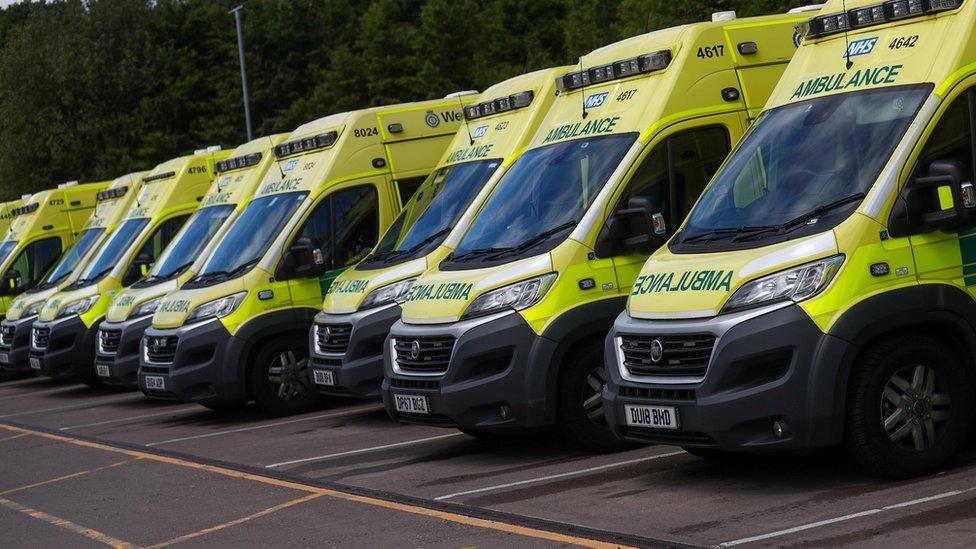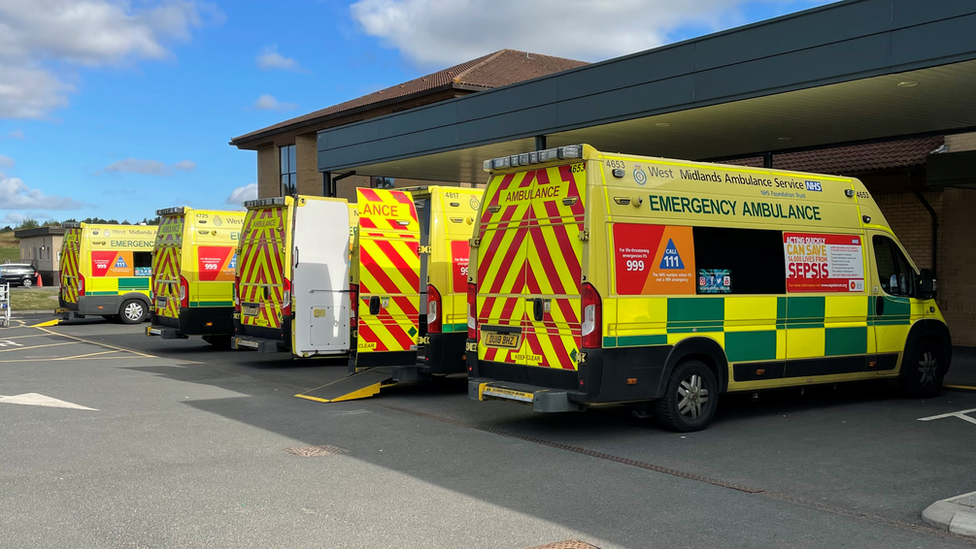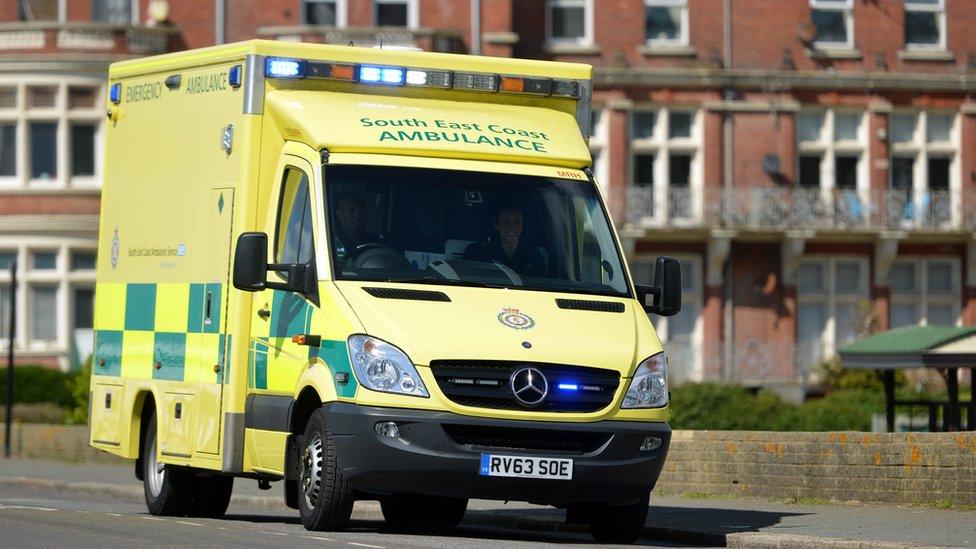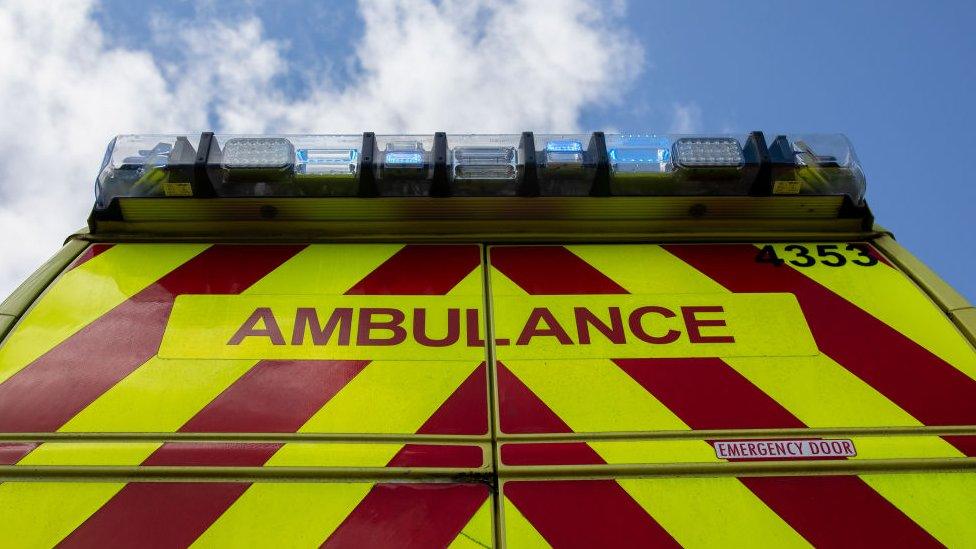Plan to downgrade ambulance calls to cut delays
- Published

West Midlands Ambulance Service will take part in the trial along with London Ambulance Service
Some emergency calls are to be downgraded by ambulance trusts to cut response times.
West Midlands and London Ambulance Services will take part in the trial, which will see category two calls, such as strokes, heart attacks, burns and sepsis, reassessed to see how quickly paramedics should respond.
It comes after medics said waits were having a "dangerous impact" on safety.
The NHS said it would prioritise time-sensitive emergencies.
The move is expected to affect around 40% of category two 999 calls, which should be responded to within 40 minutes, the NHS said.
The results of the trial will be used to establish whether some emergencies can be indefinitely downgraded into category three, which are deemed urgent but not immediately life-threatening.
In total there are four categories of emergency calls, with one being people with life-threatening illnesses or injuries and four covering non-urgent cases which require transportation to a hospital ward or clinic.
A spokesperson for the NHS said: "This trial, supported by clinicians, will start in two areas of the country with the aim of speeding up ambulance response times for the sickest patients who need care and treatment most quickly - in a similar way to how category three and four calls currently work.
"The proposal being tested will see a clinician call and assess those patients who could be treated through other services, such as a community response."
Earlier this month, West Midlands Ambulance Service admitted long handover delays had been at "catastrophic" levels for 12 months and showing no signs of improving, the Local Democracy Reporting Service said.

Follow BBC West Midlands on Facebook, external, Twitter, external and Instagram, external. Send your story ideas to: newsonline.westmidlands@bbc.co.uk, external
Related topics
- Published28 October 2022

- Published24 October 2022

- Published20 July 2022

- Published15 July 2022

- Published12 May 2022
